Don't wanna be here? Send us removal request.
Text
Which institute is best for IPS in Delhi?
The Indian Police Service (IPS) is one of the government of India's three All-India Services. It is a component of the Union Public Service Commission's (UPSC) Civil Services Examination (CSE), which is held every year. A proper mentoring is very required in order to obtain a sense of how to make judgments concerning IPS preparation.

JV’s IAS Academy offers a wide range of courses for the preparation of the UPSC IPS examination which makes it the best coaching centre for IPS preparation in Delhi. It’s courses include Integrated GS learning programmes for 2 and 3 years specifically designed for beginners to build their base and teach in an integrated manner preparing students from Prelims, Mains and Interview, and weekend batches for Integrated GS Courses and NCERT specifically designed for the working professionals and the college going students.
JV’s IAS conducts editorial analysis sessions on a daily basis covering all the significant newspapers and magazines such as The Hindu, Indian Express, Yojana magazine, Kurukshetra etc. The courses on Optional Subjects offer an in-depth analysis of the subject ensuring students to score good marks in the exam.
It also offers separate modules of the static subjects courses helping the students to strengthen their weaker subjects.
Highlights of the courses:
● All GS papers will be covered comprehensively
● Prelims cum Mains Oriented Classes
● Continuous Individual Assessment
● Doubt Clearing Sessions immediately after the class
● Interactive Live Lectures
● Access to Recorded lectures
● Comprehensive coverage of Current Affairs following an Interlinking approach with Static subjects
● Study Material: JV's Learning Kit
The institute is a one-stop solution for the preparation of the IPS Services . JV’s IAS Academy is the best institute for the preparation of IPS as you get mentored by the most senior Civil Servants, both retired and active. JV's IAS offer UPSC IPS coaching in offline as well as online platforms for both English medium and Hindi medium candidates. Start your Civil Services preparation with JV's IAS for guaranteed success.
0 notes
Text
Best Faculty for Polity UPSC
Polity & Governance is one of the most essential subjects to be studied for the tough examination called UPSC Civil Services Examination. Polity & Governance is not just the subject for rote memorization but essential for deeper understanding and our daily living. It makes Citizens aware about their rights and duties to live a life with dignity. Polity and governance teaches us about the Constitution, Fundamental Rights, Fundamental Duties, etc. For these reasons a keen study of polity and governance is required.
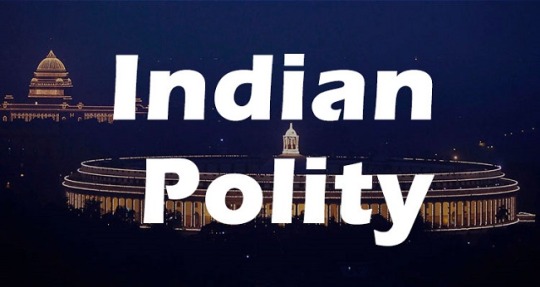
Indian Polity is well covered by the book Indian Polity by M. Lakshmikanth. But this excellent book is not good enough alone. To study Indian polity and governance, the aspirant should start reading the concepts. The best books for building the fundamentals are the Political science NCERTs of 11th and 12th class. Without understanding NCERTS, one cannot grasp the Indian polity and governance syllabus of UPSC.
Aspirants preparing for the UPSC Civil Services Examination should be having a clear concept related to polity and governance. They should be well versed with Constitutional Articles and their significance. Sometimes the aspirants rely on NCERT or Indian Polity by M. Lakshmikant alone. It is not sufficient to clear the concept of the Constitution and its provisions. Aspirants need the hand holding by the best faculty for Indian Polity. They need a mentor and guide who will make them understand various concepts of the constitution. A mentor is needed to interlink the basic concepts of polity and governance with current events of national and international importance. Aspirants should be able to interlink the concepts with the current affairs.
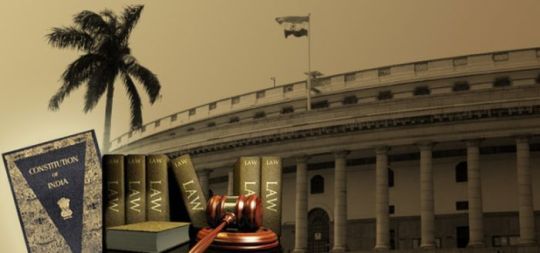
Since the polity and governance syllabus has a lot of concepts, the students may not be able to understand it on their own; here the role of personal mentorship comes. There are plethora of online platforms which offer the polity and governance syllabus. There is one big challenge in finding the best platform for polity and governance.
Jatin Verma is one mentor among many faculties for Polity and Governance who fulfill all the criterias discussed above. He has more than 5 years of experience of mentoring UPSC CSE students at Unacademy. He was one of the top educators of Unacademy. He started his own academy to mentor the aspirants in a more focused way.
He along with his institute, JV’s IAS Academy solve doubts, keep track of progress, and help to improve in weak areas.
Jatin Verma has deep conceptual understanding about Indian Polity and governance. His lucid way of interlinking current affairs with static polity and governance syllabus is very unique. He also provides PDFs of every lecture and also holds doubt clearing sessions for the aspirants. He makes good use of graphics and diagrams to make concepts easier to grasp. He also holds separate lectures for exam strategy.
0 notes
Text
How to do effective answer writing practice for UPSC?
The Union Public Service Commission conducts recruitment exams for a variety of Group A and few Group B posts in the Indian government every year. The most prestigious and the most competitive exam conducted by the UPSC is the Civil Services Examination (CSE).
The pattern of UPSC Civil Service Examination:
UPSC CSE (Preliminary)
UPSC CSE (Main)
IAS Interview/ UPSC Personality Test

The main examination is one part of the UPSC-CSE which creates a problem for the students. Firstly because of the vast syllabus that one has to study for the mains examination and secondly due to the written nature of the examination. Here are some insights to practise mains answer writing in order to clear the examination. Remember derivation of your own strategy out of a given strategy with proper practice acts as a supplement to your mains score.
Understanding what is the demand of the question
Always try to answer what is asked, not what you know. Stay within the scope of the question.
Break the question into different parts and address each part separately under heading and subheadings.
Starting an answer
A good introduction is the face of your answer.
An introduction should be crisp, relevant and provide something valuable to your answer.
Usually an introduction starts with a definition or statistics or historical background.
Avoid unnecessary, opinionated statements.
Body of the answer
Try to answer the question in a multidimensional way within the scope of the question.
Write short and simple language in points.
Don't use difficult words. Simplicity is clarity.
Have a strong grip over data/constitutional articles/committees & Authentic reports recommendations and use it to prove your point.
If there is a debatable question, present both sides of the issue before taking any stand.
Try adding flowcharts/diagrams to express your point in more crisp form.
Underline keywords and concepts to draw attention of the examiner to certain crucial parts. Avoid highlighting full sentences.
Concluding your answer
Bring mentioned points in the body together and summarise the whole answer in 1-2 sentences.
If the question pertains to some issue or a problem then conclude it with solution or committee recommendations or a way forward.
Don't add unnecessary self thoughts to the conclusion.
Points to remember
Try restricting yourself to the specified word limit, occasionally it is okay for certain questions but avoid it for every question as it risks running out of time.
Try to express your knowledge about the asked topic in the defined word limit and well within time.
Always have an eye on the clock and if you think you are falling behind, speed up your writing.
Whatever be the number of questions or distribution of marks across those questions one should write at least 80-100 marks worth answers in the first hour.
Last but not least, finish your paper in time, no matter what.
One can master all these tricks and tips with mains answer writing practice more frequently.
Frequency and Source of Practice
After acquiring the basic grip on the topic/subjects, one should start practicing mains answer writing on a daily basis.
Keep a tab on the newspaper and editorials, while practicing answer writing analyse those topics in our way in the UPSC format.
Your answer should be in a balanced form of both static and dynamic portions of the syllabus as per the question demands.
Try writing at least 2-3 essay’s out of the newspaper topics/editorials/topics from our website every week.
Keep our above mentioned insights in mind to master answer writing while practicing daily.
Good Luck!
1 note
·
View note
Text
Congratulations to JATIN VERMA’S IAS Shining Stars
Once again JATIN VERMAS IAS ACADEMY has proved its mark in terms of providing guidance to the candidates and helping them throughout their preparations .
More than 50 students of our academy have secured a rank in UPSC CSE 2020
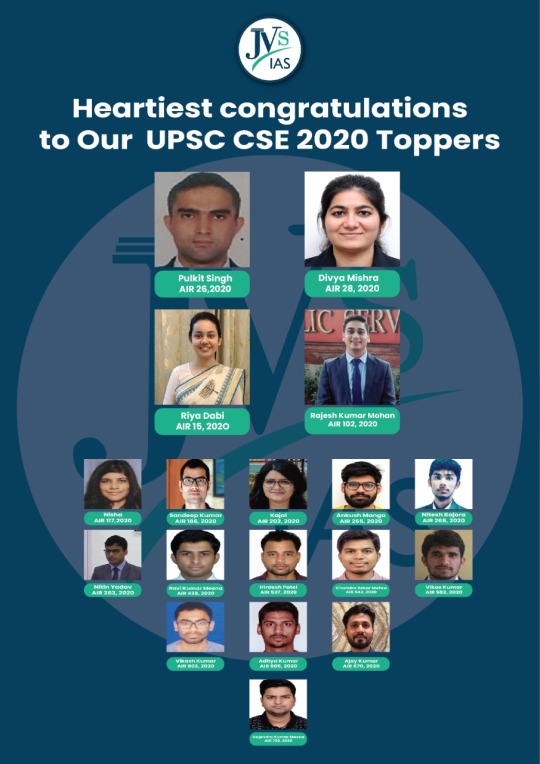
RIYA DABI
AIR 15
PULKIT SINGH
AIR 26
DIVYA MISHRA
AIR 28
RAJESH KUMAR
AIR 102
NISHA
AIR 117
SANDEEP KUMAR
AIR 186
The list is long…... as we are still in the process of receiving confirmation
emails from our students and expecting more positive results
The full list will be out shortly .
We congratulate to all who have made to the final selection list.
0 notes
Text
Daily Answer Writing Practice for UPSC 2022
It is just as crucial to learning how to write good answers in the UPSC mains exam as it is to study the subject information. This is because, at the end of the day, it is what you have put in the answer booklet that matters, not what you have read, studied, or practised. You are graded on what the examiner actually reads in the form of your answers, and the numerous hours you spent studying are irrelevant to him. As a result, it goes without saying that the art of crafting appropriate and expected responses from candidates is crucial. Take a look at a few pointers that applicants should keep in mind when preparing UPSC answer writing practice.

Why most aspirants don’t practise answer writing?
· Insecurities about composing answers.
· Lack of Confidence in one's ability to compose answers.
· Awaiting the result of the preliminary exams.
· The emphasis is on reading rather than writing answers.
· Due to a work or other obligations, there is a lack of time.
How to practise Daily answer writing practice for upsc 2022?
Step 1:
· It's preferable to begin where you are and with what you already know.
· The best thing about this exam is that it levels the playing field. Someone who has been writing answers for a long time does not have a significant edge over someone who has only recently begun. It is always possible to catch up if one works hard enough.
· For everyday questions, websites like jatinverma.org might be used at first. Experiment with questions you're unfamiliar with to push yourself out of your comfort zone.
· After you've learned more about the subject, go through your responses again. Examine where, given the time constraints and limited knowledge of the issue, the solution could have been improved.
Step 2:
· Take a test series to improve time effectively, exam practice, and external assessment.
· Keep these two criteria in mind as you prepare for the Mains: a) the calibre of the questions asked and b) the clarity of the response.
· One's answer-writing practise can now be separated into two sections: a) Concentrate on managing time; b) concentrate on the quality and format of your answers.
· Both endeavours may appear to be mutually exclusive at first. Slowly but steadily, they must come together.
Aspirants to write best answers needs the interlinking with the current events for that best teacher for current affairs needs to guide them.
Jatin Verma is among the most popular faculty for Polity and Current Affairs with over 5 years of experience coaching UPSC CSE students at Unacademy, where he was among other top educators of Unacademy until he was affiliated with it, after which he started his own institute to continue his ambition in a more efficient manner. Jatin Verma has a thorough understanding of Indian polity and governance, which he imparts through his unique method of intertwining current events with static polity sections, allowing students to grasp topics quickly and remember them for longer.
0 notes
Text
The Hindu Newspaper Editorial Analysis Today
The Hindu Editorial Analysis
With the launch of yet another innovative feature, the Jatin Verma's IAS Academy is assisting candidates in their quest for the IAS designation. Current affairs are the foundation of the Union Public Service Commission civil service exam, and any aspirant wishing to pass the exam should be up to speed with the current news and events that influence the nation.
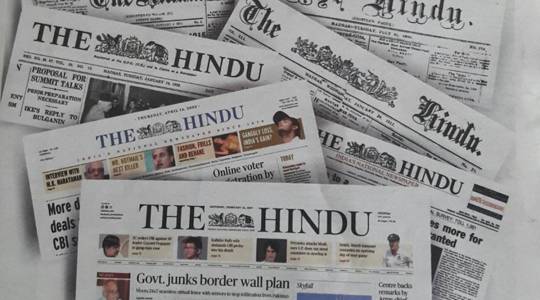
Newspapers are the most reliable source of current events study material, and specialists unanimously agree that the newspaper " The Hindu Editorial Analysis" is extremely valuable in this regard. We at Jatin Verma's IAS Academy have developed a new video news analysis tool that is both convenient and helpful, especially in light of the extensive curriculum and a large amount of reading material that an aspirant is required to cover throughout their preparation.
It is a daily feature that offers an analysis of the day's events as published in The Hindu Editorial Analysis in a concise and well-explained manner that will undoubtedly enhance your grasp of the topic and also provide you with useful insights and recommendations for structuring and composing replies to the questions. Furthermore, because they are videos, you may watch and learn from them at any time and from any location.
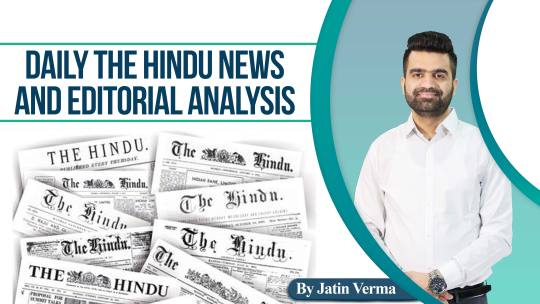
The videos are brief, with an average duration of no more than 30 min each video - making them excellent for working aspirants and those who are short on time! Together with our Extensive Newspaper Analysis, the Daily Video Analysis of The Hindu will provide you with a great shift against the much-feared current events part of the IAS examination.
Top Online UPSC Coaching in Delhi
Top Online UPSC Coaching in Delhi is preferable to offline sessions since students and teachers can communicate and share opinions more easily. Students do not need to devote time and effort to class trips. Self-disciplined and dedicated self-students are ideal candidates for online education. The nice part about online IAS coaching is that it is less expensive than offline sessions. If you don't understand something, you can record and watch a lesson later. You can reach out to your teachers and get answers to your questions quickly.

Top 5 Online IAS Coaching institutes
1. Jatin Verma's IAS Academy: Among the Top Online UPSC Coaching in Delhi, it is one of the Best Online IAS Academies, providing preparation in both online and offline modes with highly experienced professors and mentors at an affordable cost to assist aspirants to pursue their dream of being a public official.
2. Byju’s Classes: Byju's is India's most inventive and disruptive educational technology company. They provide order fulfillment coaching classes prepared by specialists for all key exams such as UPSC, JEE, NEET, and others.
3. Unacademy: Thousands of students who are taking Online UPSC coaching choose Unacademy. Students get the help and affection they need to ace their exams thanks to economical coaching programmes and a vast online community.
4. Vision IAS: They are a group of IAS sociologists with extensive experience who have proved their abilities in the UPSC Civil Service Exam and qualified for various government positions.
5. ALS: Another excellent online coaching for the UPSC examination is ALS IAS Coaching. Their online classes cover all of the topics in the UPSC syllabus. Their highly qualified faculty can assist you with topic revision. They also offer preparation materials for the next mains exam.
0 notes
Text
How do I analyze News from UPSC?

The importance of reading the newspaper cannot be overemphasised for success in the UPSC Civil Services Exam. Along with the standard NCERT textbooks and reference books, Daily Current Affairs and Editorials from newspapers provide vital study material for current affairs which is a crucial component of the questions asked in the IAS exam.
UPSC Aspirants, like me, should know that it is not necessary to read the whole newspaper in detail as part of your IAS preparation. First of all, the most recommended newspaper for the IAS exam is ‘The Hindu’. Along with newspapers, I also refer to the following for a complete picture of the events that are of national and international importance like Yojana Magazine, Press Information Bureau (PIB), PRS India, Websites of various ministries etc.
As guided by my mentor Reading newspaper articles from a few selective papers for UPSC will help me to score high in the Civil Services Prelims and Main Examination. As the articles are written by different authors on different subjects, it helps me to generate a wide range of ideas and opinions which will be beneficial for UPSC IAS Mains Examination and from an interview perspective.
Today, different coaching also provides analysis of Newspapers and claims to be Best IAS Coaching for it. It covers the Daily Current Affairs and Editorials by choosing the most relevant topics from a number of newspapers like The Hindu, Livemint, The Indian Express etc. plus a variety of national and international news websites like PIB, BBC, CNN etc.
How do analyse news from UPSC?
Having a clear idea of the UPSC syllabus before starting preparation is a must so that when reading the newspaper, Aspirants must know what is related to the syllabus and what is not. I religiously follow this method of associating Daily Current Affairs and Editorials with respective topics mentioned in UPSC Syllabus.
And I Read only the exam-relevant articles and editorials.
My goal is more important than my interest when it comes to reading the newspaper. Although I am easily tempted to read about a favourite topic or person featured in the newspaper, all this takes away precious time from my hands. Hence, I always read the paper with the clear aim of clearing the UPSC civil services exam.
I Make notes as and when I read the newspaper. I make crisp and relevant notes only, not just copy paste from Newspapers.
I don’t go in-depth in most cases. For example, I don’t cram every name and number that figures in articles related to a particular scam. I only understand the basic problem, the key figures and people involved, the policy/law related to it, and the implications of the same for the country and society.
When I read editorials I note down the positive and the negative sides to an issue. I include points from multiple perspectives. Editorials tend to prefer a particular side depending on the newspaper management’s tilt. But when I read and extract material from them, make sure to incorporate both points of view and have a balanced approach.
I tried to classify what I read into categories like geography, polity, economics, environment, ecology, science and technology, etc. This helps me make notes and also ease my preparation.
When I make notes out of the newspaper articles and editorials, write in my own words. Keep it simple and easy to learn.
I Check out the daily updated Best IAS Coaching’s comprehensive daily Current Affairs for UPSC and Editorials analysis.
Reading the newspaper helps in all the stages of the UPSC IAS exam; the prelims, the mains and the interview. Apart from that, it is also an excellent habit that will go a long way in making a well-informed, socially aware and sensitive human being.
0 notes
Text
GS-INTEGRATED BATCH FOR UPSC-CSE 2021-22

Civil Services Examination is the most esteemed exam conducted by UPSC (Union Public Service Commission). Every year thousands of aspirants appear in this exam to become a civil servant. Over recent years, the changing pattern of the civil services exam has bewildered many aspirants, leaving them in confused state with many questions tickling their minds about how to start the preparation, which book to refer, how to make notes, etc.
UPSC-CSE is conducted once every year in following phases:
Preliminary Examination
Mains Examination
Personality Test
Aspirants need to clear each phase to appear in the next phase.
The Preliminary examination is of objective type consisting of two papers, each carrying 200 marks (General Studies I and General Studies II).
The syllabus prescribed for General Studies Paper-I consisting 100 MCQs (200 marks) comprises of:
Ancient history of India and Indian National Movement;
Art & Culture of India
Indian and World Geography
Indian Polity and Governance
Economic and Social Development, Environmental & Ecology, Biodiversity and Climate Change,
General Science
It is essential for aspirants to score well in this paper in order to clear the cut-off mark to be eligible for the next level (mains examination).
The syllabus for General Studies Paper II (CSAT) consisting 80 MCQs (200 marks) comprises of; Comprehension, Logical Reasoning and Analytical ability, basic mathematical concepts and data interpretation. This paper is of qualifying nature, you only need to pass this paper (i.e. 33% of total marks).
Total marks obtained in prelims are not included in the final merit list for rank. It is marks obtained in mains and interview that decides your All India Rank.
The descriptive mains examination comprises of the following papers:
Indian Language Paper (Qualifying- 300 marks)
English paper (Qualifying- 300 marks)
Essay (250 marks)
General studies I (250 marks)
General Studies II (250 marks)
General Studies III (250 marks)
General Studies IV (250 marks)
Optional Paper I & II (250 marks each)
Preparation Phase:
Prepare a year long strategy keeping in mind the subjects and topics you are weak at and from the very beginning start following it with full determination. Build up your basics with NCERTs of all subjects (class 6th to class 12th). Read each book multiple times, and make short notes alongside for all the subjects as they are helpful in last minute revision. For better understanding of the subjects, refer to Standard books prescribed for UPSC and add the new facts and information in your NCERT notes. This process will take around 8-10 months depending on person to person and then start your revision and mock test subject-wise.
Aspirants can go through the following book list or source to refer to during their preparation:
Current Affairs:
Newspaper: The Hindu, Indian Express, and Mint
Government sites, PIB, RSTV
Daily News Analysis
Yojana/Kurukshetra
HISTORY:
Tamil Nadu NCERTs
11-12th CBSE NCERTS both old and new
Spectrum - A brief history of Modern India
Bipin Chandra’s struggle for Independence
Class 11 Fine Arts
History of the World by Arjun Dev
POLITY & GOVERNANCE:
Indian Polity by M. Laxmikant
Governance in India by M. Laxmikanth
ECONOMY:
11th-12th NCERTs
Ramesh Singh (Only selective topics)
Economic Survey and budget. You can also go through a video explanation of Economic Survey and budget and make short notes to revise later.
GEOGRAPHY:
11th-12th NCERTS
GC Leong
Atlas (mapping)
ENVIRONMENT:
12th Biology NCERT ( environment unit only )
NIOS Ecology Notes
Magazines and Newspapers
SCIENCE & TECHNOLOGY:
Class 6-10 NCERTs (selected topics for basics clarity)
Science Reporter Magazine
The Hindu Sunday Science & Technology page.
RSTV Science Monitor
INTERNAL SECURITY & DISASTER MANAGEMENT
‘India’s National Security – A Reader‘ by Oxford University Press
Special Edition of Yojana on Disaster management.
ETHICS & INTEGRITY:
Ethics, Integrity & Aptitude – G. Subba Rao & P. N Roy Chowdhury
Lexicon for Ethics, Integrity & Aptitude for IAS General Studies Paper IV – Niraj Kumar.
For the preparation of UPSC, guidance of expert faculty plays a very important role. They’ll guide you at each step not only on how to deal with a particular subject but also how to deal with the stress and depression many students face during the preparation. For the expert guidance and personal mentors you can enroll yourself in any reputed IAS Coaching in Delhi. They’ll help you with expert guidance, strategic preparation, study materials and Prelims and mains Mock Tests series based on UPSC pattern.
One such academy is Jatin Verma’s IAS Academy providing one year Integrated GS Course for UPSC 2022.
SAARTHI (1 YEAR FOUNDATION COURSE) by JV’s
Features:
Full GS Syllabus coverage (Pre + Mains)
CSAT + Essay classes
Mains answer writing practice
Current Affairs Classes
JV’s Premium kit (All subjects study material and current affairs magazines)
Prelims + Mains Test Series with discussion classes
Personal Mentorship
Aspirants can enroll in this course for a systematic preparation for UPSC CSE 2021-22.
0 notes
Text
Best Online UPSC Coaching
The dream of becoming an IAS officer motivates thousands of students each year to prepare hard for the toughest exam conducted by the UPSC with full dedication and discipline.
Many IAS aspirants apply for the UPSC CSE every year. But, clearing the exam and becoming an IAS officer needs a lot of dedication, hard work, consistency, sacrifices and why not? What is worth achieving wont come easy.
Global pandemic has made many aspirants shift to online platforms to prepare for civil services. Now the question arises whether the online platforms are good enough for the civil services preparation? Answer is hidden in your desire to become one. No one can make you an IAS if you don’t want to become one from the core of your heart. If you’re hungry enough to achieve your goal of becoming an IAS then no matter what platform it is you’ll prepare with full dedication and discipline. No one has to poke you to manage time and be consistent. You know you have to and you will.
Some aspirants work really hard but due to lack of or no guidance, they are not able to crack the exam. Both of these factors can be achieved by joining online IAS coaching. Addressing another question tickling the minds of young aspirants, How to choose a good Online IAS Coaching in all this junk and distraction of the internet? As we are aware of the vastness of the syllabus and the level of the competition of civil services examination, you should not settle for a coaching providing less than the following:
Best Quality study material
Experienced Faculty
Interactive sessions
Supportive Mentors
Sectional and comprehensive Test Series (based on UPSC pattern and marking scheme)
Among many institutes that are providing the above requisites I would draw the attention of the aspirants towards the name Jatin Verma’s IAS Academy, a renowned result oriented IAS online coaching institute in Karol Bagh, Delhi. This academy provides:
Interactive classes
Covering every inch of syllabus
Weekly doubt sessions and tests
Readily available mentors to guide students
Not to forget about the well researched material to study written in easy to understand language.
One can definitely crack the UPSC CSE examination by self-study but coaching acts as a catalyst in this preparation saving a lot of time and mental agony of aspirants. Civil Servants are known for their quick and right decisions, same is being expected from Civil Services aspirants as well.
Decide wisely.
All the Best !
0 notes
Text
Best 10 IAS coaching Institutes in Delhi

UPSC CSE examination is the doorstep for IAS/IPS/IFS posts. Every year lakhs of aspirants appear for this exam.
The level of competition is rising every year. Choosing the right mentor and right material with correct strategy becomes extremely important.
In this article we will discuss the Best IAS Institutes in Delhi. Top Coaching institutes provide you the correct path required for cracking this exam.So let us explore some Best of them
#1: Jatin Verma IAS Academy:
Jatin Verma IAS Academy is the best IAS Coaching Institute in Delhi. The reason for this is that Mr. Jatin Verma, the founder of the institute has made good use of his experience in the past and has come up with numerous small and big courses required to address various elements of the UPSC CSE Examination.
#2: Vajiram and Ravi IAS Institute
It is the oldest institute in Delhi for UPSC CSE preparation. It has given many results. It is because of its gained name that many students prefer Vajiram & Ravi as they arrive Delhi to UPSC CSE Preparation.
#3: Shankar IAS
Shankar IAS is also considered as one of the best institutes in Delhi. Book on Environment by Shankar IAS is recommended by many other institutes as well. It also promises all basic facilities essential for students like quality classes, study material, etc.
#4: Vision IAS
Vision IAS has become quite famous in recent times. Its current affairs magazine, PT 365 and Mains 365 are recommended by toppers. They have both online and offline facilities maintained with good quality.
#5: Maluka IAS
Maluka IAS Academy promises prelims selection. Any institute which promises so will come up with tested and proven strategies for clearing exams. That is why it is kept at place 5.
#6: Sriram IAS
Sriram IAS has got its very famous book on Indian Economy, recommended by many toppers and institutes.
#7: Drishti IAS
Drishti IAS is famous for the mock interview it takes. Social media always have one or two minutes clips on mocks taken by the. The other reason to be famous is that they provide coaching in Hindi language as well.
#8: Lukmaan IAS:
We can’t underestimate the value of GS IV which deals with Ethics. Lukmaan IAS provides the best coaching and material on Ethics in India.
#9: ALS Institute:
ALS IAS is of the well recognised institute for UPSC CSE in Delhi. They teach all subjects like Geography, History, etc.
#10: KSG IAS Institute
Khan Study Group has given many results in the last few years. Tina Dabi is one of the examples. Khan Sir is well known for his teaching skills and counselling students.
There are some factors you should consider while preparing for UPSC in Delhi
1)Health: Take good care of your health. Weather conditions are extreme here.
2)Quality Teaching: Teaching quality of any institute should always be good. Before taking up any institute, attain demo lectures.
3) Size: You should check the size of the batch available. Maximum number of students in a single batch can not promise you individual attention.
4)Seniors: Always try to be in touch with seniors in your area/ class. They can provide you with honest suggestions based upon their experiences.
0 notes
Text
FREE STUDY MATERIAL FOR UPSC CSE PREPARATION
Welcome to this long and adventurous journey called Union Public Services Commission Civil Service Examination. This journey is fun and challenging at the same time. You will come to know about almost everything happening around you. Ultimately the gained knowledge and rank secured will convert you into a bureaucrat. This journey is worth it.
IAS Exam preparation is not only about studying books and materials, it is also about reading correct books.
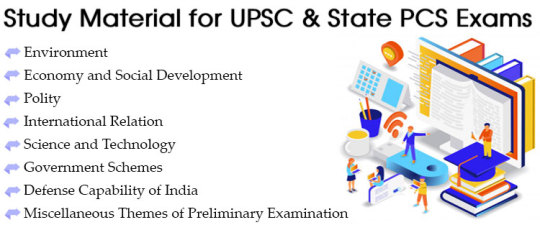
There are many sources/material available in the market. It is also a wise choice to be selective while choosing books.
Free study material for UPSC is available on a number of platforms.
Basic books for UPSC comprises NCERTs. NCERT pdf are easily available on government site:
ncert.nic.in/textbook.php.
While preparing for Art and Culture, you must read Centre For Culture Resources and Training(CCRT) resources on Visual,performing and literary arts.
NIOS books are also recommended by some toppers. You may also download them from their websites.
To get a better idea on history and Optional subjects like Political Science, Indira Gandhi National Open University books are also available for free on the internet.
You can join good institutes telegram channels, visit websites and many more to get their materials for free.
Some of the best places are:
Jatin Verma IAS Academy: Jatin Verma IAS academy is one of the leading online/offline institutes in India. It has now extended in branches in other parts of the country.This institute has developed its own app, website and runs a telegram channel where you can get details of all their study materials.
You will get here online daily news updates, monthly news compilation pdf, Magazines and NCERTs.
InsightsIAS: This institute has also got all important materials developed by them available for free. You can get current affairs daily material, UPSC online current affairs compilation, quiz compilation, gist of Yojana & Kurukshetra.
Byju’s IAS: Byju’s IAS is one of the leading online upsc coaching institutes in India. They provide a number of materials for free and are paid for.
0 notes
Text
Tips For UPSC Preparation
UPSC CSE is one of the most prestigious exams and attempted by lakhs of aspirants every year.The exam is challenging for many reasons, like it’s vast syllabus, unpredictable questions asked by commission and huge number of applicants.
We will provide you some tips here which will help you to achieve what you are aspiring for.
Tip 1: Survey
Try to know what UPSC is and the job profile of an IAS/IPS. You may have to compromise your family time for the sake of your job.Listen to experiences shared by retired IAS/IPS officers. With power comes huge responsibility.
Tip 2: Be ready
Once you realize that you can be a part of this bureaucracy then prepare yourself. Prepare yourself for the long journey, for being focused, for staying motivated. This journey is really very long. It will take one year before you appear for the exam.
Tip 3: Exam Pattern
Know the UPSC CSE pattern and syllabus. It has three stages: Prelims, Mains and Interview. Read the syllabus for both prelims and mains. Mug up the syllabus.prepare
Paper 1 GS 100 MCQs 200 Marks
Paper 2 CSAT 80 MCQs 200 Marks
For CSAT, candidates have to score 33% (66 marks) to qualify for Prelims.
To know how and what to study, analyze the previous year questions asked by the commission.
Syllabus and previous year questions will act as a guide for you.
Tip 4: Time Table
Make a timetable for one year first. Whole syllabus should be completed with the set timetable.
Begin with an optional subject which will take three to four months. This will go along with UPSC current affairs reading and GS as well.
Try to sync current affairs with GS topics.
After optional is done, you can now divide your GS and optional timing giving more focus to GS.
Once this is done, shift all your focus to prelims.Dedicated 3 months should be given for UPSC preparation.
You can visit Jatin Verma’s IAS Academy’s website for joining 120 days plan for free.
Tip 5: Newspaper
Newspaper reading is crucial from day one to the last day. This last day of preparation is the day of your interview. The Hindu or Indian Express should be read on a regular basis. Notes should be made from it and important data should be extracted and noted down.
You can watch youtube videos to know the strategy in detail and get a clearer idea.
Tip 6: NCERTs
NCERTs form the foundation of preparation. NCERT books from class 6 to 12 should be read.UPSC asks questions directly from NCERTs. These marks are in your hand, you have to grab them. It even forms the benchmark score. Because many aspirants will be able to solve these questions correctly, and you can’t miss these marks. If you missed them, you will be out of the race there itself.
Geography Class 6 to 12
History Class 6 to 12
Old NCERT by R.S Sharma /Satish Chandra
Art and Culture Class 11 and 12
Indian economy Class 9 to 12
Tip 7: Important websites
There are many important government websites which you should be visiting. PIB is the most important.All the ministry website should be visited. Atleast go through them every week. Schemes and its details can be read from respective websites. FAQ on schemes are good sources of relevant information.
Tip 8: Notes
First tip on this is do not make notes from first reading.You may find almost everything important in first reading. Only do underline with pencil for the first reading. From second reading inwards, you can start making notes. Notes making should be crisp and concise. It should not be the copy paste of a textbook. Key words, flow charts and diagrams should be used. Make use of one note or evernote for digital notes making.Like cashless economy, paperless economy is easy and viable.
Tip 9: Mapping
Map study is something which requires time. It is hard to sit and mug up maps in some days. It should get organic with gradual process. Make a habit of looking at maps every day.
Map study should be done under various headings such as geographical features like mountains, rivers,etc.Under this, know its origin,course,states and recent development.
Important places in news should be linked to map plotting.
There are some favourite areas of UPSC like Asia, gulf region from which they will ask map based questions.
Tip 10 : Answer Writing
Answer writing is an inevitable part of UPSC preparation. Don’t wait for the syllabus to complete and then write. AAs soon as you finish one topic, start writing on that topic. You can find questions on multiple online IAS coaching websites.
Tip 11: PYQ
Previous Year Questions analysis is very important. You can analyse it by taking use of online coaching institutes which provide prelims and mains analysis of every year question papers. You can also buy books available in the market for the same.
PYQ ensures your preparation in the correct direction. Try to solve them as well.
Tip 12: Test Series
Joining any mock test for UPSC is important as this will make sure you are handling your emotions well in the exam hall. It will also bring you in the practice of handling and solving new types of questions because UPSC anyway asks unpredictable types of questions.
UPSC free mock tests are easily available in the market.
After every mock, analyse your performance. Read the detailed given answers carefully.
Tip 14: Revision
Revise , revise and revise. Follow the scientific way of revision.Our brain tends to forget learnt things if it is not revised in regular intervals of time. What you read today and notes made should be revised within 24 hours. Then after seven days,then 15 days,the 30 so on. It is a little tricky to revise such a big quantity of notes.
For this you make use of digital sheets, notes and reminders.
Tip 15: Health
Health should be a priority. You can’t concentrate if you are not well. Maintain a good diet and have brain foods like almonds,green vegetables,fruits,etc.
1 note
·
View note